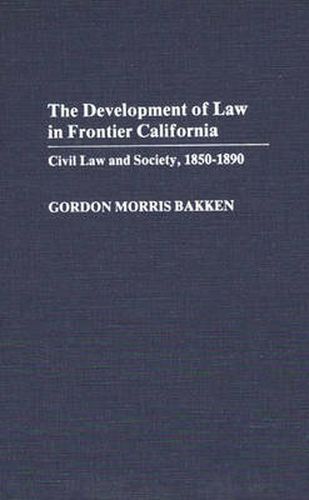Readings Newsletter
Become a Readings Member to make your shopping experience even easier.
Sign in or sign up for free!
You’re not far away from qualifying for FREE standard shipping within Australia
You’ve qualified for FREE standard shipping within Australia
The cart is loading…






This is a thought-provoking exploration of the development of civil law in California from 1850 to 1890. Focusing upon contract, landlord and tenant, mortgage, tort, and admiralty law, Bakken argues that the formulation of the law generally responded to socioeconomic forces. He also asserts that on the operational level, the law’s reach was limited by ambiguities, judicial inexactitude, and mistakes made by the bar. Essentially, the broad policy goals of frontier law worked to stimulate marketplace forces by facilitating certain transactions. Entrepreneurs often received the aid of the developing law, but were frustrated by it at other times. Bakken scrutinizes the role of judges, legislators, lawyers, and laymen in contributing to this process. Finally, he demonstrates that the law was less certain and the policy considerations less clear when the law actually functioned on an operational level in society.
$9.00 standard shipping within Australia
FREE standard shipping within Australia for orders over $100.00
Express & International shipping calculated at checkout
This is a thought-provoking exploration of the development of civil law in California from 1850 to 1890. Focusing upon contract, landlord and tenant, mortgage, tort, and admiralty law, Bakken argues that the formulation of the law generally responded to socioeconomic forces. He also asserts that on the operational level, the law’s reach was limited by ambiguities, judicial inexactitude, and mistakes made by the bar. Essentially, the broad policy goals of frontier law worked to stimulate marketplace forces by facilitating certain transactions. Entrepreneurs often received the aid of the developing law, but were frustrated by it at other times. Bakken scrutinizes the role of judges, legislators, lawyers, and laymen in contributing to this process. Finally, he demonstrates that the law was less certain and the policy considerations less clear when the law actually functioned on an operational level in society.